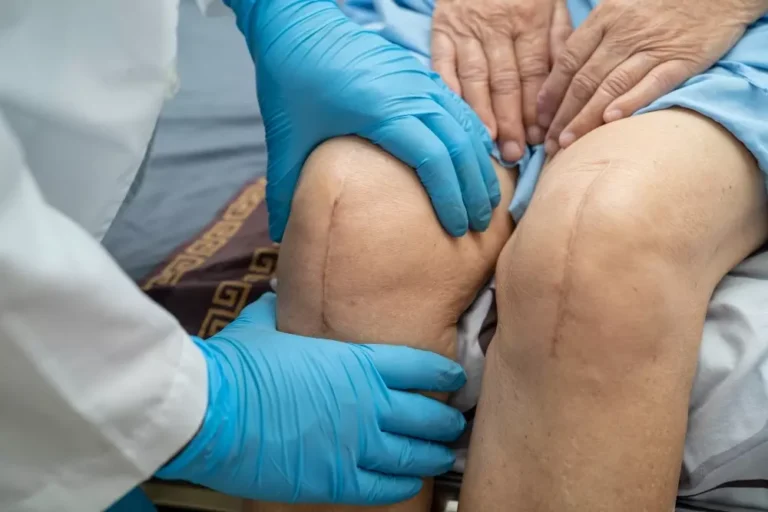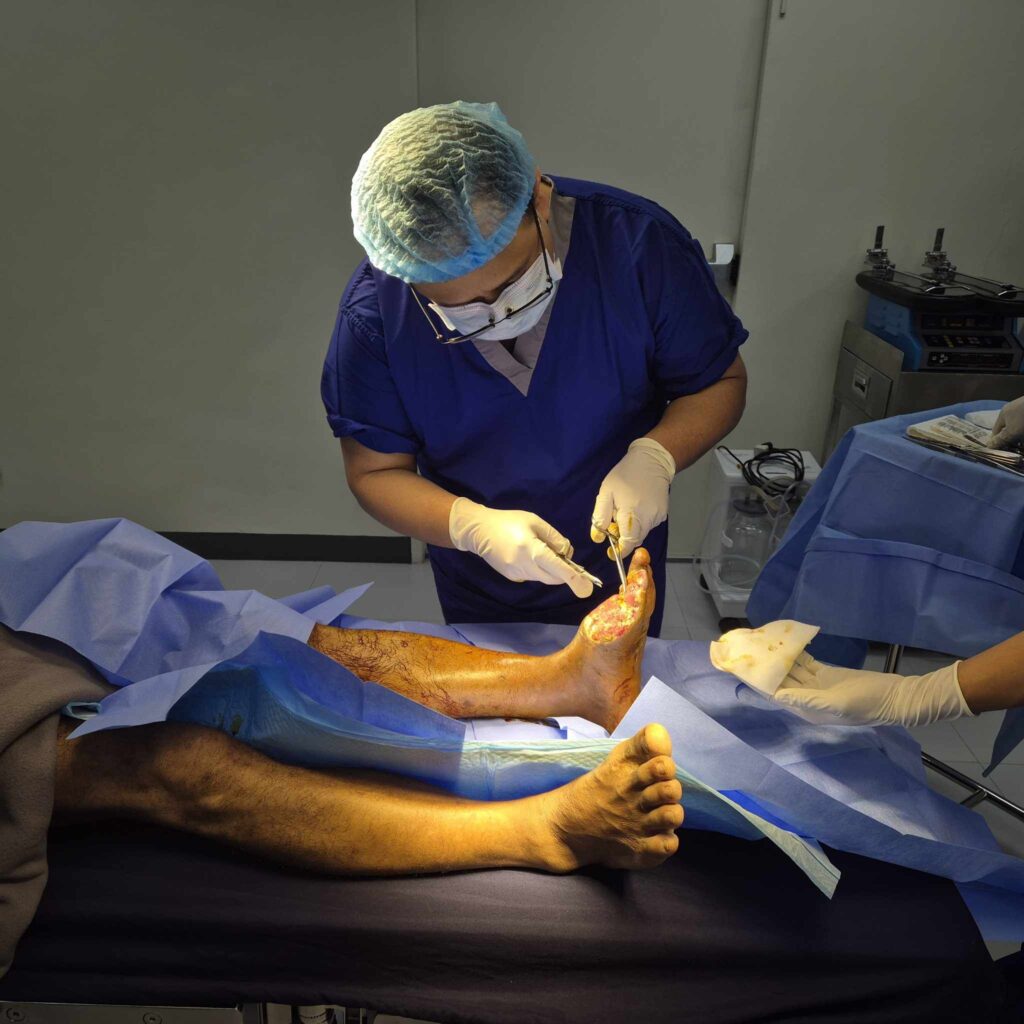Total Knee Replacement (TKR) is a surgical procedure designed to replace a damaged or worn-out knee joint with an artificial implant. This operation is most often recommended for patients suffering from severe knee pain due to osteoarthritis, rheumatoid arthritis, or knee injury. Unlike partial knee replacement, which targets only part of the knee, TKR replaces the entire joint surface, providing more comprehensive relief. The goal of this surgery is to restore mobility, relieve chronic pain, and improve overall quality of life. TKR can greatly enhance a patient’s ability to perform everyday tasks such as walking, climbing stairs, and standing for extended periods. Modern advancements in implant materials and surgical techniques have significantly improved recovery times and outcomes. This makes TKR a reliable option for those who have exhausted conservative treatments like physical therapy or medications.
Who Needs a Total Knee Replacement
TKR is usually recommended for individuals who experience persistent knee pain that significantly affects their daily life. Signs that surgery might be necessary include severe discomfort during normal activities, swelling that doesn’t improve with treatment, and stiffness that limits movement. Age and activity level are important factors; however, TKR can benefit both seniors and younger patients with severe joint damage. Doctors use diagnostic tools such as X-rays, MRI scans, and CT scans to evaluate the extent of knee damage. A thorough medical evaluation helps determine whether TKR is the best solution. Patients with advanced arthritis who no longer find relief through medication or therapy are often candidates for the surgery. A comprehensive consultation with an orthopedic surgeon will outline the benefits and risks, ensuring informed decision-making.
Preparing for Total Knee Replacement
Proper preparation before TKR can greatly affect the success of the surgery and speed of recovery. Pre-operative physical assessments ensure that the patient is healthy enough for surgery. Lifestyle adjustments such as improving nutrition and maintaining a healthy weight can reduce surgical risks and support healing. Patients may be encouraged to perform specific exercises to strengthen surrounding muscles before the operation. Psychological preparation is equally important, as patients should have realistic expectations for the recovery process. Consulting with a physiotherapist can provide valuable guidance on exercises and mobility strategies post-surgery. Preparing the home for recovery — such as removing tripping hazards and arranging support equipment — can improve comfort during rehabilitation.
The Total Knee Replacement Procedure
The TKR procedure involves removing damaged bone and cartilage from the knee joint and replacing it with a prosthetic implant. This implant is typically made of metal alloys and high-grade plastic components designed to mimic natural joint movement. Surgical techniques vary, with traditional open surgery and minimally invasive approaches both available. Minimally invasive surgery often results in smaller incisions, reduced blood loss, and quicker recovery. The surgery generally lasts between one and two hours, depending on the complexity. Potential risks include infection, blood clots, implant loosening, and stiffness. However, advancements in surgical methods and post-operative care have significantly reduced these complications. The surgeon will discuss all possible risks and ensure that the patient understands the procedure.
Recovery After Total Knee Replacement
Recovery after TKR requires careful planning, patience, and adherence to medical guidance. Immediately after surgery, patients typically stay in the hospital for a few days under close observation. Pain management is an important part of recovery, involving prescribed medication and sometimes nerve blocks. Physical therapy starts soon after surgery to restore movement and strengthen surrounding muscles. Recovery timelines vary, but many patients begin walking with assistance within days and gradually improve mobility over weeks. Avoiding high-impact activities during recovery is crucial to protect the implant. Ongoing exercises at home help maintain progress and prevent stiffness. Regular follow-up appointments allow the surgeon to track healing and address concerns.
Long-Term Results and Benefits
One of the main benefits of Total Knee Replacement is significant pain reduction, allowing patients to return to an active lifestyle. Improved mobility makes daily activities such as walking, standing, and climbing stairs much easier. Many patients experience better sleep and enhanced overall health due to reduced discomfort. Modern implants are designed to last 15–20 years or longer with proper care. Long-term success depends on maintaining a healthy lifestyle and adhering to post-surgery exercise programs. Regular medical checkups ensure that the implant remains in optimal condition. Patients often find renewed confidence in their ability to engage in activities they once avoided due to pain.
Common Misconceptions About Total Knee Replacement
There are several misconceptions surrounding TKR that can create unnecessary hesitation. One common myth is that recovery is always painful and prolonged; in reality, most patients experience steady improvement with proper care. Another misconception is that TKR is only for older adults; younger patients with severe joint issues can benefit as well. Some believe the procedure eliminates all knee pain, but realistic expectations should include possible residual discomfort. Others worry that surgery limits future activity, though many patients return to sports and recreational activities. Understanding these realities helps patients make informed decisions and fosters better preparation for recovery.
Frequently Asked Questions (FAQ)
How long does a total knee replacement last?
A modern knee implant can last between 15 to 20 years, depending on activity level, weight, and adherence to post-surgery care.
What is the success rate of TKR?
TKR generally has a success rate of more than 90%, with most patients reporting significant pain relief and improved mobility.
How painful is the recovery process?
While some discomfort is expected, pain is managed with medication and physical therapy. Most patients notice gradual improvement over time.
Can I return to sports after TKR?
Low-impact activities such as swimming, cycling, and walking are encouraged. High-impact sports should be avoided to protect the implant.
Are there alternatives to total knee replacement?
Alternatives may include medication, physical therapy, partial knee replacement, or regenerative treatments, depending on the severity of knee damage.
Takeaway
Total Knee Replacement is a life-changing option for those suffering from severe knee pain and mobility limitations. With advances in surgical techniques and rehabilitation, patients can expect a faster, smoother recovery and a return to active living. Careful preparation, realistic expectations, and ongoing care are keys to the long-term success of TKR. This procedure not only alleviates pain but also enhances quality of life, making it a worthwhile consideration for those struggling with chronic knee conditions. For anyone considering Total Knee Replacement, thorough consultation with a trusted orthopedic surgeon is essential to ensure the best possible outcome.






